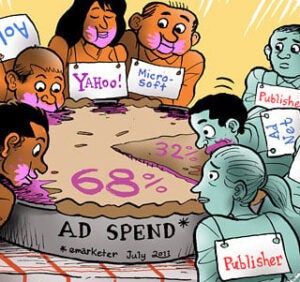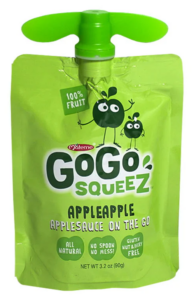Data clean rooms are becoming an important part of how agencies analyze and use data.
The most basic definition of a data clean room is a privacy-based technology that allows companies to securely merge and match two or more first-party data sets to create a new audience segment or run joint analytics.
The most important words in that definition are “privacy-based” and “securely.”
Some agencies, like IPG, are acquiring data businesses so as to own the means of production, so to speak. But others are choosing to collaborate, like Canvas Worldwide, which on Tuesday announced a partnership with InfoSum, marking the agency’s first-ever data clean room integration.
The agency POV
As an independent media agency that doesn’t have thousands of employees or billions of dollars to spend, partnering with a data clean room provider is a way for Canvas to start educating itself about thus type of service on behalf clients, said Kevin McEvilly, the agency’s SVP of technology.
Canvas selected InfoSum, he said, because it’s a more marketer-friendly product – which is to say, it doesn’t require SQL or data science knowledge, as some competitors do, in order to operate effectively.
Although the plan is for Canvas to onboard more data clean room-type partners down the line, he added, “InfoSum was, in our assessment, the one with less of a tech lift than other players in the space we could have gone with.”
For example, although McEvilly said he’s a fan of Habu’s platform too, it has a higher technical bar.
Learning & growing
The first phase of the new partnership will be to bring in InfoSum people to educate Canvas team members, who can then present the tech to their brand clients and help them use it.
But why do brands need Canvas to be integrated with InfoSum?
Mostly to resurrect capabilities that are disappearing along with third-party cookies and other online ad identifiers, McEvilly said.
Today, clean rooms are mostly used for experimental purposes as marketers test new online identity solutions, targeting and measurement strategies and ways to augment their own customer profiles. (Bear in mind, when advertisers have their data in a walled garden-based clean room like Google’s Ads Data Hub or Amazon Marketing Cloud, the customer info can’t be exported to enhance the brand’s own data set.)
The idea is to “maintain” the forms of online ad targeting and measurement advertisers are accustomed to without forcing them to overhaul their business processes, McEvilly said. Eventually, though, he said, data collaboration tech will be less about “experimentation” than just another process by which familiar forms of ad targeting and measurement can be achieved without breaching privacy rules.
Canvas is “trying to gain as much knowledge [as possible] with good partners over the next 12 to 24 months,” he said. “And as the industry continues to shake out, we’ll start to evolve ourselves.”
The InfoSum of its parts
For InfoSum, agencies are an increasingly important part of market outreach, said COO Lauren Wetzel. Agencies can help push for the adoption of collaboration software, she said, because they’re the ones who teach and present privacy-enhancing tech and martech solutions to most brand marketers.
Agencies are also starting to think of themselves as unique data owners, she said.
InfoSum works with Omnicom, for instance, which just acquired Flywheel Digital for $835 million, in part because Flywheel possesses its own store of data tied to online product pricing and aggregate sales.
Wetzel said the impetus to adopt data collaboration tech for most US-based agencies, as with advertisers, is the recognition that their online advertising capabilities are already degrading – and will disintegrate entirely when (… if) Chrome deprecates third-party cookies. In Europe, where InfoSum was founded and is headquartered, clean rooms were an earlier test-and-add category in response to privacy legislation.
She said InfoSum is better suited for the long haul in the category, rather than companies that started out as data warehouses or by creating matching tables for identity graphs. (Looking at you, Snowflake and LiveRamp). Those companies build models off that data and either consume the data for their own purposes or use it to power their data marketplace products.
“LiveRamp is not Switzerland,” Wetzel said – and she isn’t referring to the place in Europe, by the way, but to LiveRamp’s longstanding positioning as a neutral arbiter in the ecosystem.
Habu, for example, the data clean room service recently acquired by LiveRamp, is now in a strong position to distribute LiveRamp’s RampID within its own pipes. But the incentives aren’t aligned, she said, when collaboration software is attached to an identity provider that might come with an expensive 12-month contract, or while so many marketers are trying to get candid perspectives on which identity service to use in the first place.
As long as she has a say, Wetzel said InfoSum won’t sell data or media.
The fact that there are so many “flavors” of data clean rooms and collaboration tech in the market, means that the benefits of one type of service over another aren’t yet well understood by many brand marketers.
Even the term “clean room” is itself a misnomer, McEvilly said. Between walled gardens, data filtering and onboarding companies claiming different purposes for their clean room products, the category actually quite a mess.
“There’s nothing clean about it,” he said.

















